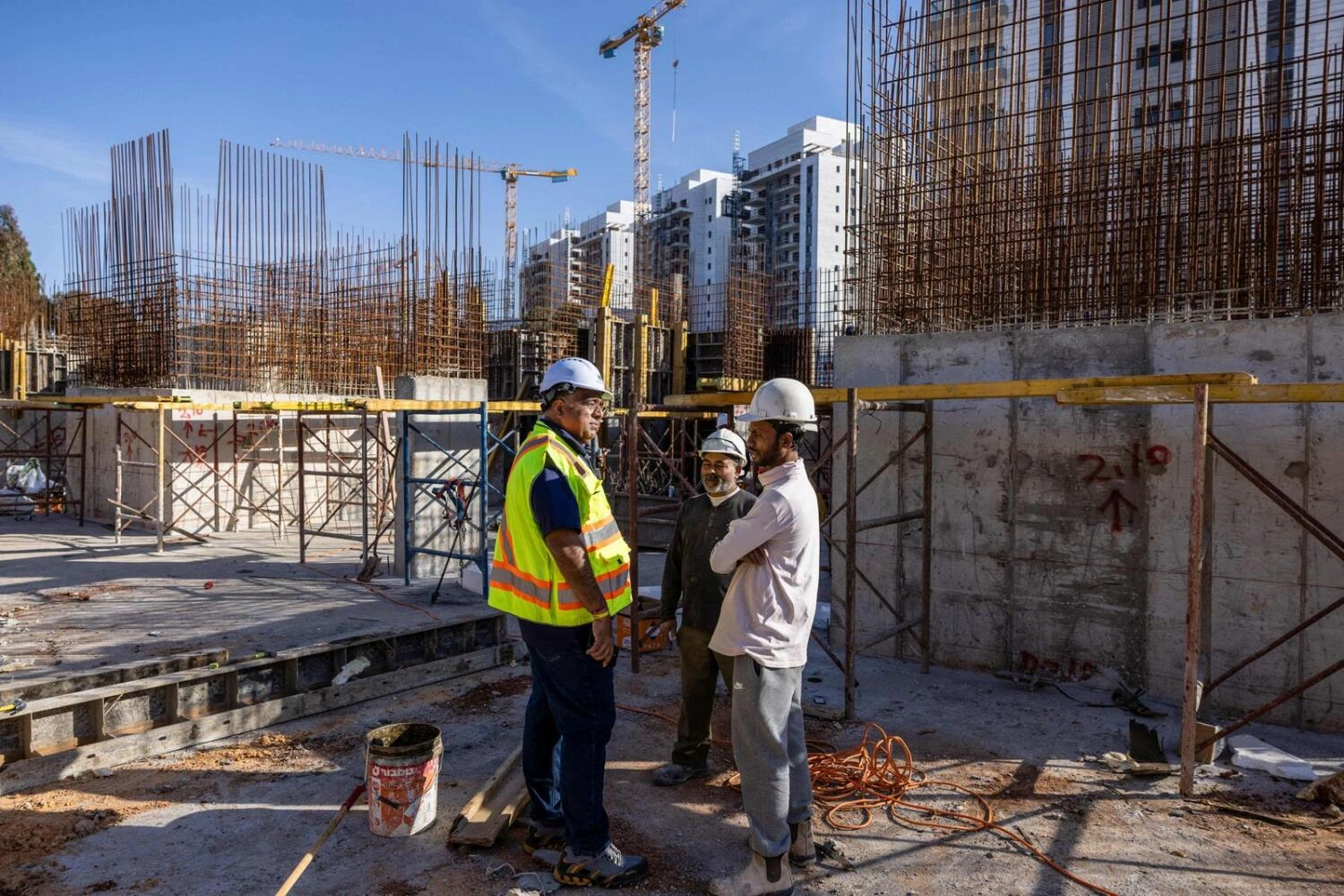Wearing a safety belt, helmet, and work boots, Raju Nishad confidently moves across the scaffolding, hammering blocks to build part of a new neighborhood in central Israel’s Beer Yaakov.
While Nishad and other Indian workers blend into the bustling construction site, they are newcomers to Israel’s building industry.
These workers are part of Israel’s initiative to replace thousands of Palestinian construction laborers, who have been unable to enter since Hamas’s attack on October 7, 2023. Before the attack, construction sites were filled with Arabic-speaking workers. Now, languages like Hindi, Hebrew, and Mandarin dominate the air.
The attack ignited Israel’s deadliest conflict with Hamas, spreading to involve Hezbollah, Yemen’s Huthi rebels, and even tensions with Iran. Despite the unrest, Nishad, 35, decided to take the leap.
“There’s nothing to fear here,” he said, recalling moments when sirens forced him into shelters. “Once the warning ends, we get back to work.”
High wages in Israel, nearly three times more than what they earn back home, motivate workers like Nishad to migrate. “I’m saving for the future and planning meaningful investments for my family,” he shared.
Over the past year, around 16,000 Indian workers have joined Israel’s construction sector, with plans to bring thousands more. India, while being the world’s fifth-largest economy, struggles with job creation for its growing population.
Indians have a history of working in Israel, primarily as caregivers or professionals in IT and diamond trading. However, the war has accelerated recruitment efforts to bring skilled laborers for the construction sector.
Samir Khosla, chairman of Delhi-based Dynamic Staffing Services, has already sent 3,500 Indian workers to Israel. “We had to quickly understand the market’s needs,” he said, noting the strong relations between India and Israel. Khosla aims to bring in up to 10,000 workers, leveraging his extensive network of skilled tradespeople.
In Tel Aviv, Indian workers share apartments where they not only excel in construction but also cook traditional spicy dishes from home.
“In a short time, one can earn more here,” said Suresh Kumar Verma, 39, also from Uttar Pradesh. Like Nishad, he is focused on securing a better future for his family.
Despite the influx of Indian workers, the construction sector still hasn’t matched the pre-war numbers of Palestinian laborers. Before the attack, approximately 80,000 Palestinians and 26,000 foreign workers were employed in construction. Today, the total foreign workforce has dropped to 30,000, causing a 25% slowdown in sector activity, according to Eyal Argov from the Bank of Israel.
Argov highlighted that while there isn’t an immediate housing shortage, delays in new construction could create supply issues in the future. With Israel’s population growing at 2% annually, such delays might soon become significant.





